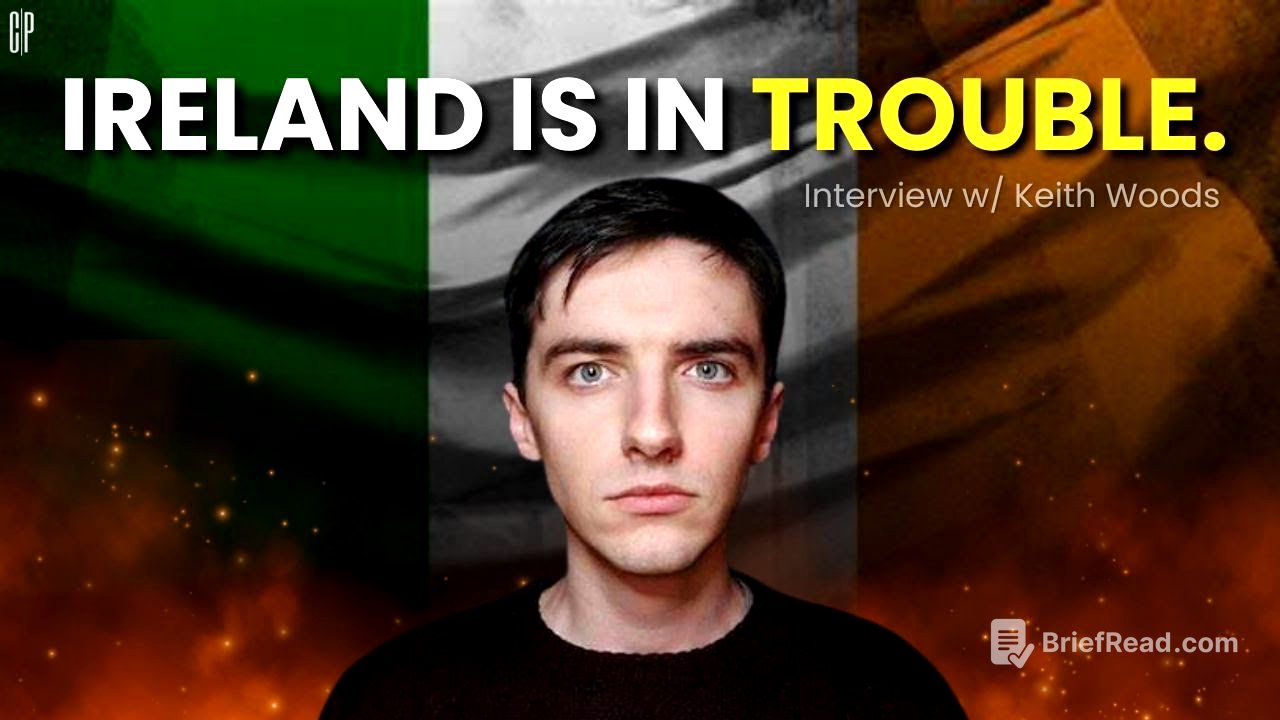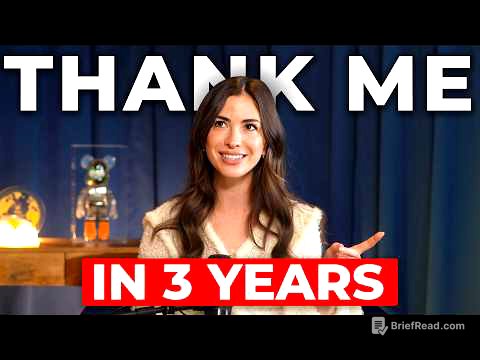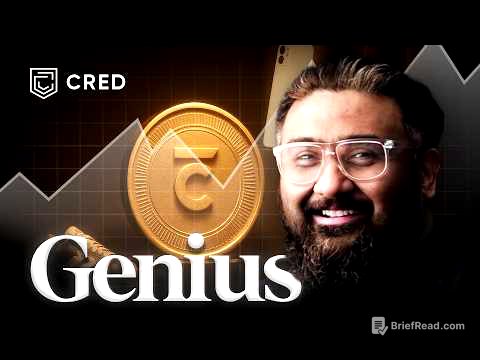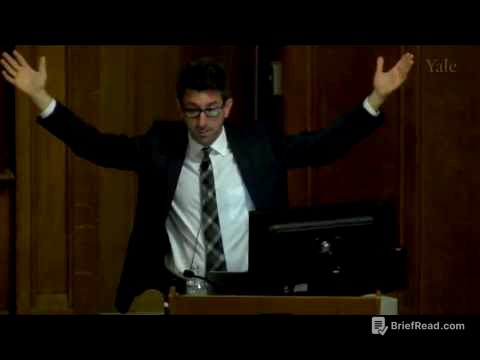TLDR;
This episode of Counterpoint features a discussion with Keith Woods, an author and commentator, on nationalism, immigration, and the current political and social landscape in Ireland and Europe. Woods argues for the importance of national identity and expresses concerns about the effects of mass immigration and multiculturalism. The conversation also covers censorship, free speech, and the role of NGOs in shaping policy.
- The difference between nationalism and globalism.
- The effects of mass immigration and multiculturalism.
- Censorship and free speech issues in Ireland and Europe.
- The role of NGOs in shaping policy.
Introduction [0:00]
The host introduces Keith Woods, highlighting his book "Nationalism: The Politics of Identity," which argues for the importance of nationalism. The host reads a review of Woods' book, emphasizing its insights on race, multiculturalism, and Irish nationalism. The host expresses his wish to have read the book earlier in life, noting it would have saved him years of confusion.
Nationalism vs. Globalism [2:34]
Keith Woods defines nationalism as a worldview where people shape institutions, contrasting it with globalism, which posits that institutions shape people. He criticizes the idea that Western liberalism can erase cultural differences, leading to interchangeable individuals. Woods cautions against mass immigration experiments that alter a nation's demographic character. He points out that countries like the UK and Denmark are recognizing the failures of open borders and multiculturalism.
The Problems with Mass Immigration [4:41]
Woods cites data from Denmark showing that second and third-generation immigrants take more welfare benefits and have higher crime rates than first-generation immigrants. He argues that the promise of multiculturalism, where immigrants adopt Western values and become interchangeable, has not materialized. He notes that even traditionally left-wing governments in Sweden and elsewhere acknowledge the creation of parallel societies due to mass immigration.
Irish Government's Immigration Policy [8:47]
The host questions the Irish government's decision to opt into the EU migration pact, which will bring in thousands of additional migrants per year. Woods criticizes the pact's clause allowing the EU to set quotas in emergency situations, potentially leading to millions of migrants. He accuses Irish politicians of blindly following EU directives and bypassing democratic mandates.
The Inevitable Backlash [13:24]
Woods predicts a backlash due to the high rate of immigration in Ireland, which is increasing the population by 3% annually. He notes a shift towards South Asian migration and warns of potential ethnic conflicts, citing the example of riots in Leicester, UK, between Hindus and Muslims. Woods highlights the absence of a mainstream outlet for concerns about immigration, leading to raw populist expressions.
Media Censorship and the Irish Government [15:51]
The host criticizes the Irish media for its lack of reporting on immigration issues and notes an agreement between the NUJ and the UN high commissioner for refugees not to mention the ethnicity of perpetrators in crime coverage. Woods suggests that Ireland is moving towards authoritarianism. He mentions Denmark and Sweden's experiments with financial incentives for migrants to return to their homelands.
Social Trust and Diversity [19:21]
Woods argues that diverse societies experience a breakdown in social trust, leading to people withdrawing from their communities. He cites studies showing that ethnically diverse places have more conflicts and downward social trends. He reiterates that high immigration rates will create parallel societies and problems that will take generations to fix.
Censorship on Social Media Platforms [20:46]
Woods recounts his experience of being censored on YouTube after a campaign against the Anti-Defamation League (ADL). He describes how Media Matters for America, a left-wing organization, targeted him, leading to his removal from the platform. Woods argues that this is an example of foreign interference.
The Irish Hate Speech Bill [23:58]
Woods discusses the Irish hate speech bill and how awareness was raised about its potential for overreach, including jail time for possessing offensive memes. He credits the online community with creating public pressure that forced politicians to backtrack. Woods emphasizes the importance of media holding legislators accountable.
Free Speech and US Intervention [25:51]
The host notes the fracture between the US and Europe on free speech issues, with Ireland regulating US tech companies at European standards. Woods mentions that the US State Department has expressed concern about the free speech rights of Irish and European citizens due to the implementation of the Digital Services Act (DSA). He highlights that the DSA allows for censorship of content that is not illegal but is deemed too sensitive for Europe.
The Role of NGOs [28:32]
Woods discusses a meeting between the commission in charge of regulating EU digital platforms and the Hope and Courage Collective, formerly the Faride Observatory, which he describes as a group of Antifa pro-immigration activists. He criticizes the influence of state-funded NGOs and the lack of representative democracy.
The Need for Organization and Representation [30:53]
Woods expresses optimism about the emergence of new voices and content creators. He notes that opinion polls show significant opposition to immigration and support for a far-right party. Woods emphasizes the need for organization and coherence in representing these views.
The Absence of Women [32:20]
The host points out the absence of women in the organization of rallies and content creation. He suggests that women have historically been a significant driver of political change in Ireland and that attention needs to be given to this area. Woods acknowledges the point and notes that women in France support Marine Le Pen's party at higher rates than men.
The Role of the President [34:16]
The host questions the role of the Irish president in protecting the people against state overreach. Woods argues that the president should be willing to take a strong stand against the government and address the subversion of institutions by the NGO complex. He suggests that the president should initiate a conversation about the way institutions are being subverted.
The Family Referendum and Political Landscape [37:14]
Woods mentions the family referendum, where the Irish people rejected constitutional changes despite political and media support. He suggests that this indicates a skepticism towards progressive ideals. The host adds that civil servants were concerned about the potential insolvency of Ireland if the referendum had passed.
The Unwrapping of Wokeism [40:20]
The host suggests that the destruction of the Green Party in the general election was the beginning of the unwrapping and rejection of wokeism. Woods notes that the Irish electorate is often faced with a choice between the progressive center and the radical left, with Finale and Fina Fall seeming increasingly left-wing.
Irish Nationalism and Future Projects [42:36]
Woods discusses his book "Irish Nationalism: Essential Writings," a collection of Irish nationalist writings from the 18th to 19th century. He mentions that he is working on a book about decentralization and localism, addressing the unaccountable democratic structure with NGOs and unelected bureaucrats.
Decentralization and Localism [44:50]
Woods advocates for a shift in power to local government and decentralization. He uses Switzerland as an example of a country with power at a local level, which has allowed it to preserve local cultures and take a referendum against mass immigration.
Direct Democracy and the EU Compact [47:14]
The host notes that the 1922 Irish constitution had a direct democracy clause that would allow the people to jump in and demand a national referendum. He argues that this would stop much of the madness, such as joining the EU compact. Woods agrees, stating that the buck is passed down to NGOs and up to international obligations.
Transparency and Accountability [48:44]
The host mentions that the only NGO ever stopped or closed down was the one that was telling people where all the benefits were going. Woods concludes that this is a lesson in the importance of transparency and accountability.









